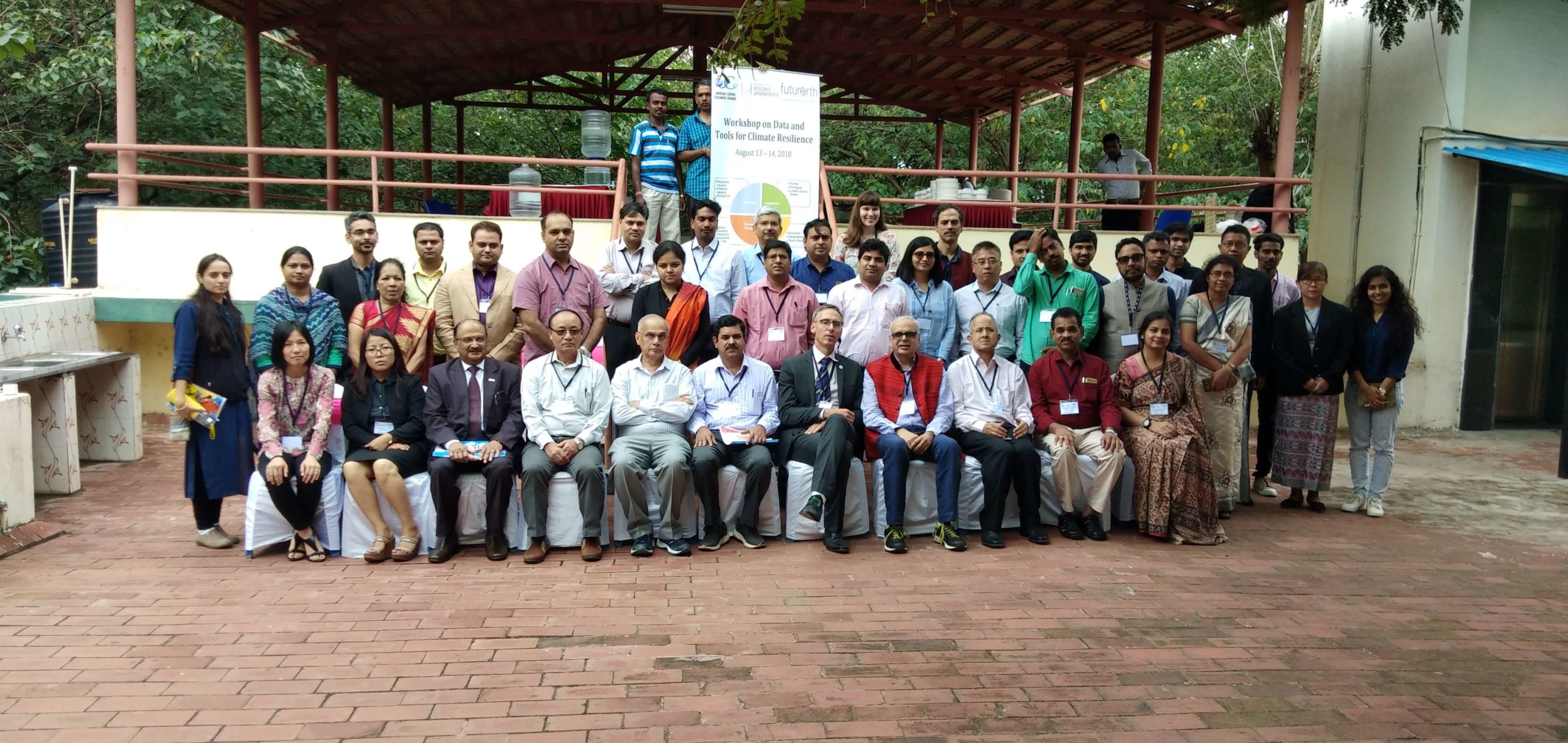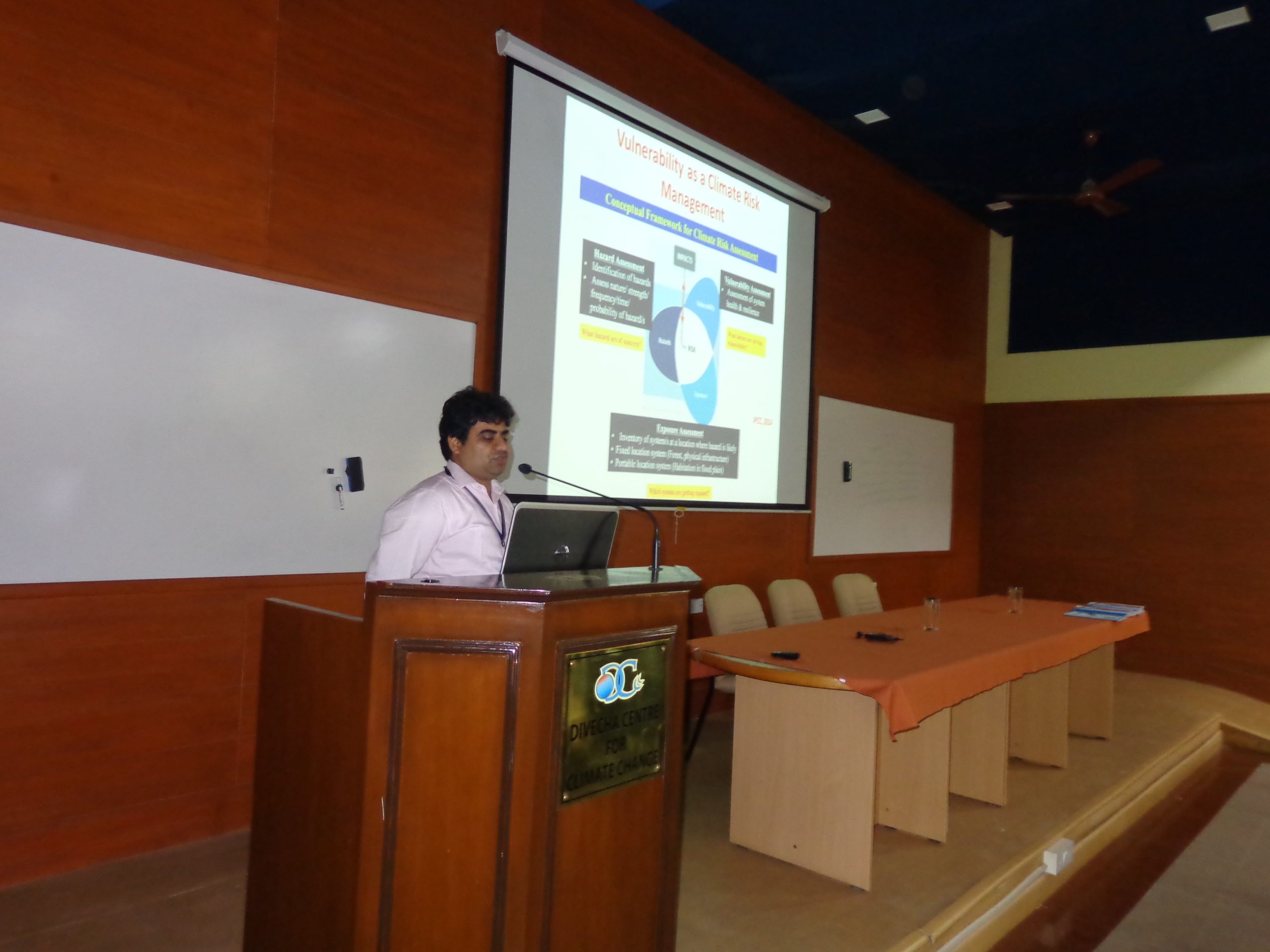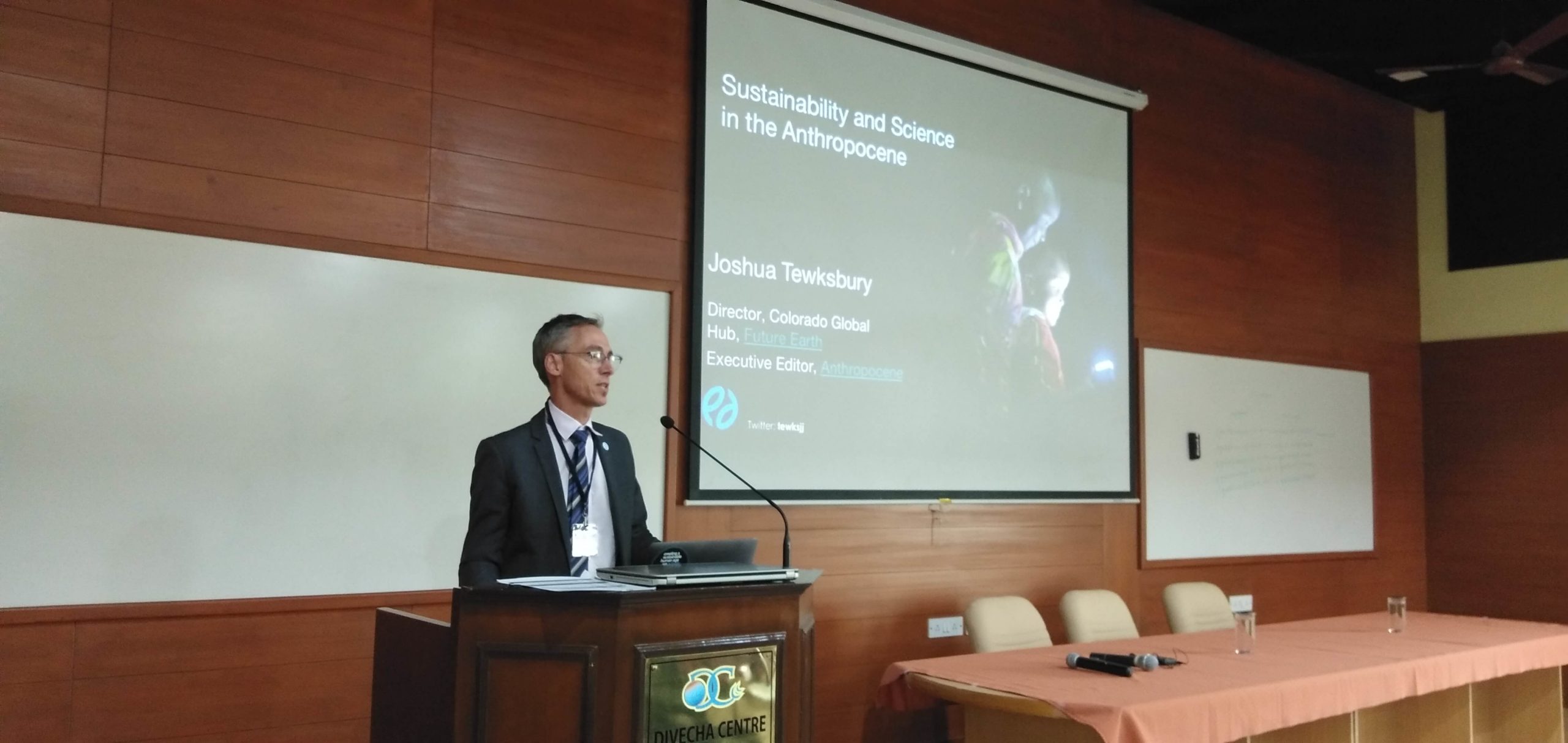Future Earth South Asia Regional Office at the Divecha Centre for Climate Change hosted a two-day workshop on “Data and Tools for Climate Resilience Planning in South Asia” from 13 to 14 August 2018. The workshop aimed to provide a platform for dialogue on climate adaptation and resilience, among research communities, policy makers, funding agencies, government officials, NGOs, sustainability enterprises, and other stakeholders in South Asia. The workshop was attended by scientists, economists, physicians, government officials, private sector and NGO representatives from India, Nepal, Bhutan, Myanmar, and Sri Lanka.
.


Prof. Joshua Tewksbury, Director, Future Earth, Colorado hub, opened the workshop and outlined Future Earth’s perspective on climate resilience. Session 1 focused on “Satellite and Climate Data and Tools” for Resilience Planning in South Asia. Session 2 comprised presentations of case studies on climate adaptation and resilience that have developed or used data in innovative ways. In Session 3, nodal officers from state governments from Manipur, Telangana and Madhya Pradesh presented about the ongoing climate resilience activities their respective states. In this session we also heard views and perspectives from representatives from intergovernmental bodies such as IUCN, IPBES. Representatives from sustainability corporations such as CTRAN, TARU, and IPE Global also presented their perspectives and experiences in resilience planning in South Asia.
On day two, the workshop deliberated upon the ongoing adaptation projects in different parts of India and other regions of South Asia. In the second half of day two, WRI and Future Earth, Colorado hub presented their Public-Private Partnership for Data Visualization (PREP) tool. The workshop had a wide range of participation from data providers, to practitioners to nodal officers from different Indian states as well as other countries from the South Asian region. This workshop has improved capacity building around data and tools for climate adaptation and resilience planning in the region. We have at least achieved to showcase as to what data and tools exist for resilience planning, and how to improve feedback and communication among different stakeholders. As part of the stakeholder feedback and communication, the last session witnessed a discussion on opportunities to engage beyond this workshop.
The following key conclusions emerged from this discussion:
- A proposal was discussed to initiate a Future Earth Fellowship programme, to take forward this momentum around the climate resilience theme in the South Asian region
- It was proposed that International Union for Conservation of Nature (IUCN), Intergovernmental Science-Policy Platform on Biodiversity and Ecosystem Services (IPBES) and Future Earth programmes not only work more closely at the global level, but they also collaborate at the regional level (South Asia) to bridge the knowledge and research gaps for communities and policy makers in this region
- State nodal agencies on climate resilience and adaptation expressed desire to work closely with Future Earth regional office in South Asia and, especially look forward to benefiting from the full-scale development of the PREP tool for this region.
- National Bank for Agriculture and Rural Development (NABARD) representative expressed hope to engage many of the partners who were present in the meeting for their training, capacity building programmes and, for the impact assessment, monitoring and evaluation related requirements for the ongoing adaptation projects.
- Representatives from NGOs, and sustainability corporations expressed their desire to collaborate with the Future Earth Regional office at Divecha Centre on a host of climate adaptation related issues including on the PREP tool.
